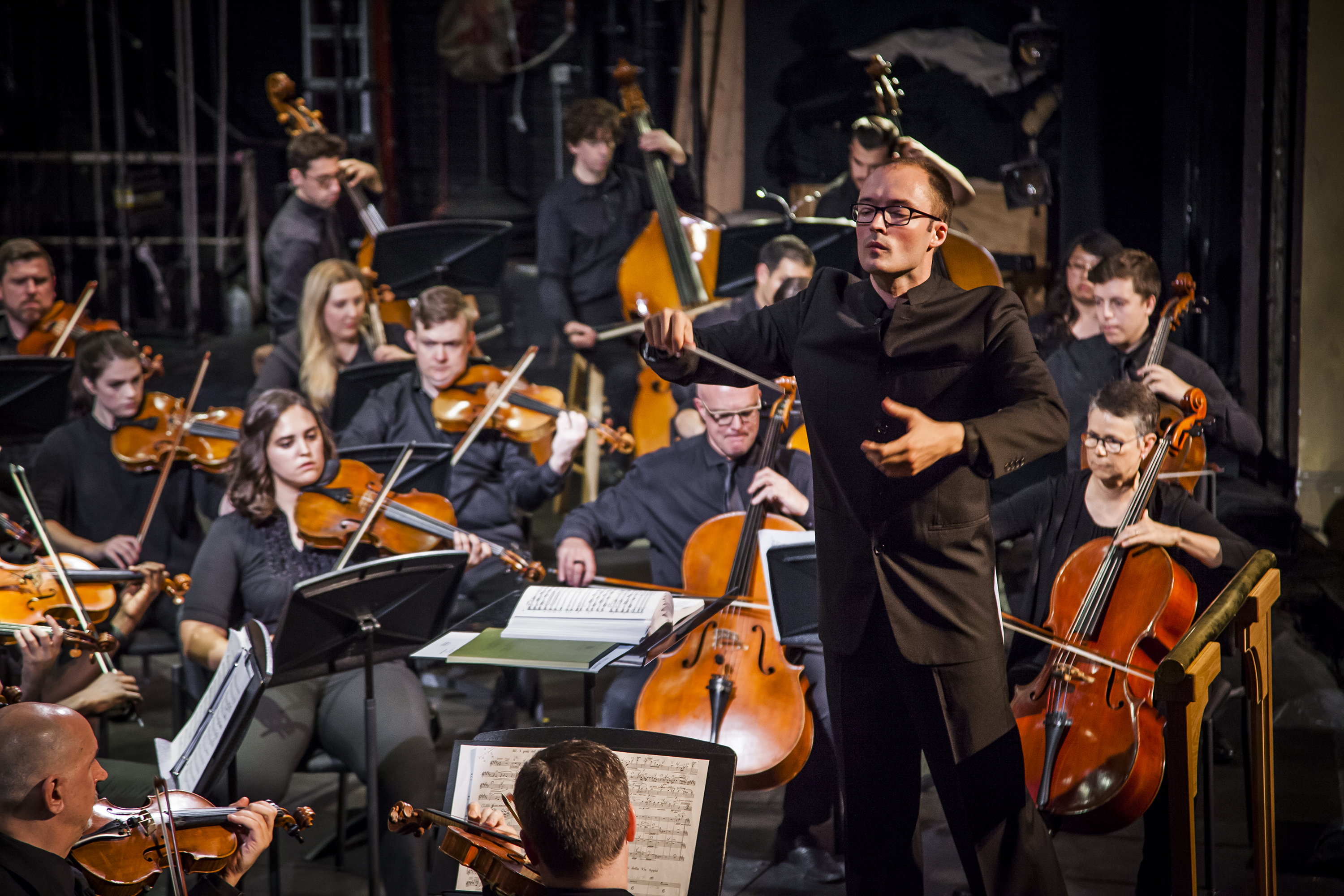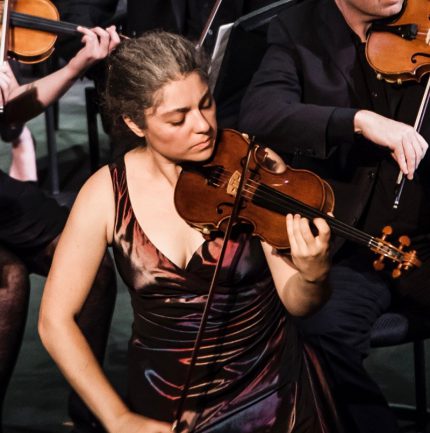Lakeview Orchestra is on the rise with impressive season opener

There is a common assumption in Chicago, largely unspoken, that all the important music-making in town takes place within a 1.5 square-mile area downtown.
But there are dozens of ensembles, large and small, scattered throughout Chicago and environs that are regularly—and often against great odds—serving their communities without drawing a lot of attention.
Such an organization is the Lakeview Orchestra, which opened an ambitious seven-concert season Tuesday night at the Athenaeum Theatre.
Launched in 2013, the north-side community orchestra has grown quickly in size and quality under the leadership of founding music director Gregory Hughes. With its new home at the Athenaeum, hearing the Lakeview Orchestra in a quality venue only served to strengthen previous favorable impressions.
With the stage facade removed, the orchestra performed in front of the back brick wall of the 117-year-old building, which lent an aptly industrial Chicago look. Nonetheless, the sound in this intimate acoustic was surprisingly good for a midsize orchestra—a bit dry but clear, present and detailed.
There was the fleeting horn bloop and technical slip, but under the firm, focused direction of Hughes, the musicians played very well indeed. This is clearly an ensemble on the rise, and the Lakeview Orchestra should be on the radar of all concert-going audiences in Chicago not just those in their local neighborhood.
The evening began with the Karelia Suite of Jean Sibelius. Hughes’s fine control of dynamics skillfully built the “Intermezzo” from the quiet rustling of strings and subdued horn solo into the buoyant main theme. There could have been more hushed mystery in the opening section of the “Ballade”; but there was recompense in the idiomatic, lonely solos from the clarinets and English horn, and the string chorale theme was put across with enveloping warmth of tone. The suite was rounded off with a jaunty, spirited take on the “Alla marcia.”
The concert’s centerpiece was Brahms’ Violin Concerto, with Heather Wittels as soloist. Wittels has served in the first-violin section of the Chicago Lyric Opera Orchestra for the past nine seasons.
When a musician spends their professional career blending in unobtrusively with the colleagues around them, it’s not always an easy thing to summon up solo bravado at will.
Yet there was no hint of cautious anonymity Tuesday night. Wittels brought an easy confidence, tonal purity and immaculate technique to this fiddle warhorse that made it emerge uncommonly fresh and compelling.
The soloist played with exquisite taste throughout, with a finely judged blending of drama and lyrical repose in this often-elusive work. She also brought some welcome individuality, opting for the Kreisler cadenza in the first movement rather than the standard Joachim.
Wittels was at her best in the introspective passages—as with the glowing serenity near the end of the first movement, or the simple tenderness of her playing in the Adagio. Perhaps the finale could have used more fire and zigeneur swagger but it was intriguing to hear this familiar music played with such refined tone and unshowy, elegant artistry.
At times one wanted more dramatic bite and intensity from the orchestra, especially in the first movement. For the most part, Hughes was a superb and sympathetic partner, closely accompanying his soloist.
The Pines of Rome closed the evening.
Subtlety is not usually what one thinks of in any performance of Respighi’s theatrical showpiece. But under Hughes’ direction, this was a Pines that proved rewarding by concentrating on scoring details and atmosphere more than sonic bombast and thrills.
To be sure, the first movement (“Pines of the Villa Borgehese”) was as spirited as one might wish and Hughes built the legions’ inexorable tread in the closing “Pines of the Appian Way” into a climax with suitable impact, though the brasses could have been better projected.
But it was the more lightly scored inner sections that proved most effective. The Catacombs was strikingly atmospheric, with the concentrated playing and evocative wind solos, here and in the third section, nicely distilling the nocturnal expression.
Josh Mather conducts the Lakeview Orchestra 7:30 p.m. November 13 at the Athenaeum Theatre. The “Celestial Objects” program offers John Williams’ Star Wars Suite, Colin Matthews’ Pluto, The Renewer and Holst’s The Planets, in partnership with visual artists Sarah and Joseph Belknap. lakevieworchestra.org
Posted in Performances



